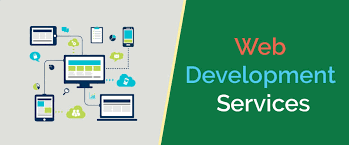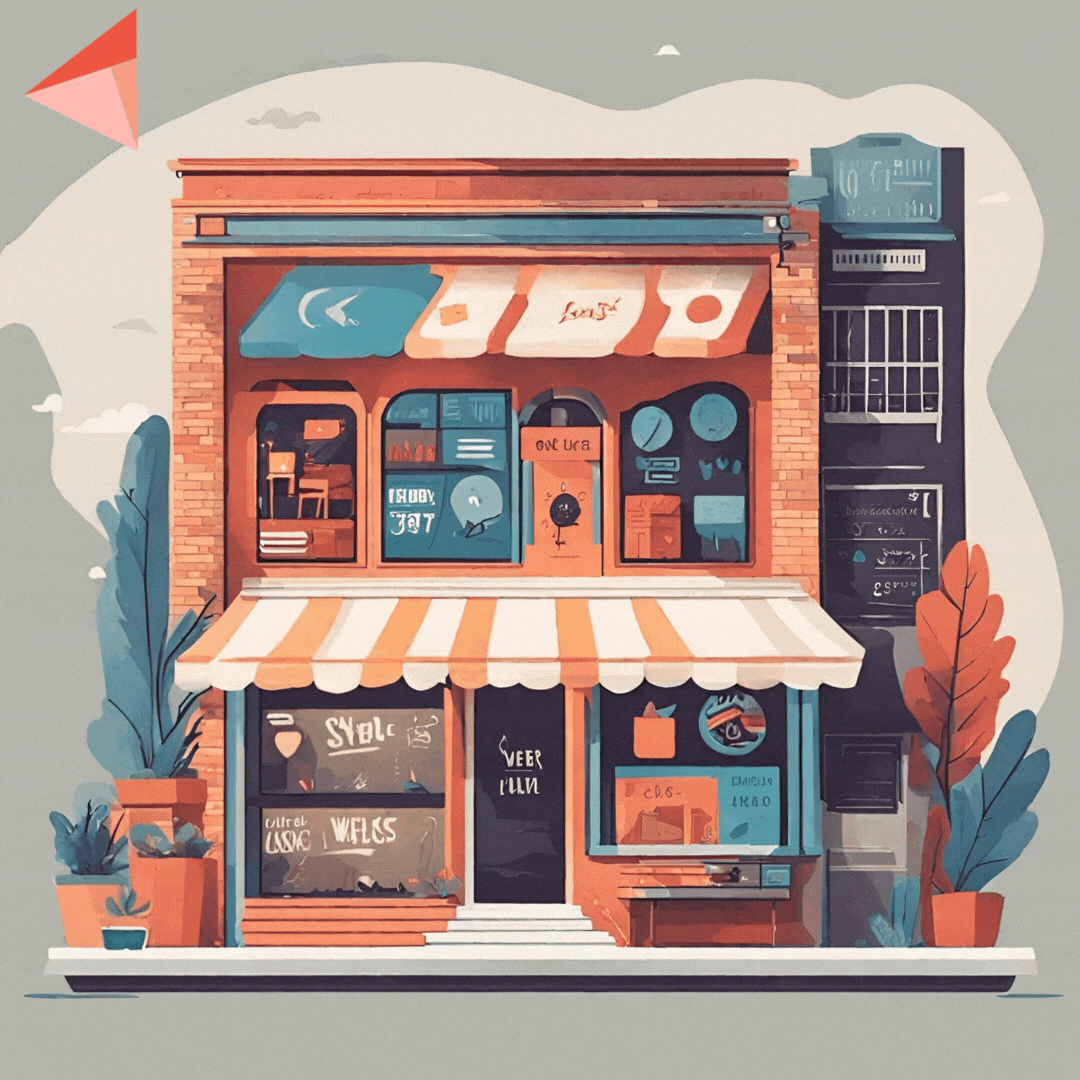Website Development in London :Ecommerce has become an essential sales channel for businesses of all sizes. As per UK Office for National Statistics, online retail sales hit a record high of £2.5 billion in August 2022, accounting for 27.1% of total retail spending.
With more consumers shopping online, having a high-performing ecommerce website is crucial for retailers and brands looking to tap this growth. London, being a global business hub, has a thriving web development sector catering to ecommerce companies.

In this guide, we will look at:
- Leading ecommerce web development companies in London
- Website features and technologies used
- Ecommerce web design trends
- Cost of development
- Tips for selecting a developer
- FAQs on ecommerce website development
Top Ecommerce Website Development Companies in London
London has a number of skilled web development agencies offering ecommerce website design, development and hosting services. Here are some leading names in this space:
Exogrow Solutions
Exogrow Solutions is a digital agency specializing in ecommerce web design, development and digital marketing. With a team of 50+ experts, they have delivered over 500 projects for SMBs and enterprises globally. Exogrow builds customized Shopify, Magento and custom ecommerce stores integrated with payment gateways, shipping solutions and CRM.
Blue Stag
Blue Stag has been building ecommerce websites since 2008. Their team of developers and designers have experience across platforms like Shopify, BigCommerce, Magento and WordPress/WooCommerce. Past clients include Universal Music, Faber & Faber, and Marriott Hotels.
Bold Commerce
Bold Commerce focuses exclusively on Shopify ecommerce website development. They have built and optimized stores for several high-volume Shopify merchants. Their services include app development, headless Shopify integration, and Shopify Plus enterprise implementations.
Clear Software
With over 15 years of experience, Clear Software has delivered solutions for both B2C and B2B ecommerce companies. Their services span platform selection, UX design, development, systems integration and managed support. They leverage technologies like Magento, Shopify Plus and BigCommerce.
Fat Media
Fat Media builds Shopify stores optimized for conversion and performance. Their team of Shopify experts focuses on quality code, security, SEO best practices and responsive design. Recent ecommerce projects include GearHungry, Camper, Volcom and Movember.
Features of a Good Ecommerce Website
An effective ecommerce website requires a combination of good design, compelling content, and functional features. Here are some must-haves:
- Responsive design: This ensures a consistent experience across desktop and mobile. Pages dynamically scale to fit different screen sizes.
- User-friendly navigation: Allows customers to easily find products and information. Features like category menus, site search and breadcrumbs help.
- Robust product catalogue: Lets visitors browse and search products. Includes high quality images, pricing, variants, descriptions and reviews.
- Smooth checkout process: Supports guest and registered user checkout. Collects shipping and payment information across multiple steps.
- Payment gateway integration: Provides options to pay via credit card, debit card, digital wallets, COD etc. Popular options include Stripe, PayPal, CCAvenue.
- Order management: Admin interface to manage orders, track status, update tracking info, generate invoices and process refunds.
- SEO optimization: Code, content and metadata optimization to achieve higher organic rankings and traffic.
- Performance optimization: Page caching, compression, minification and image optimization to accelerate load times.
- Security: SSL certificate, regular updates and backups to provide a secure shopping experience. Protection against cyber threats.
Latest Ecommerce Website Design Trends
Some key ecommerce web design trends shaping up in 2023 include:
Immersive product experiences
Brands are using AR and 3D to create engaging product visualization. Customers can view products from different angles and in context before purchasing. IKEA and Converse are early adopters of this tech.
Illustrations and animations
Ecommerce sites are using custom illustrations, vibrant animations and quirky mascots instead of stock photos to add personality. Anthropomorphized objects and animals are popular themes.
Minimalist and bold typography
Minimalist web design continues to grow, with lots of white space and focus on important elements. Bold, large typography instantly grabs attention. Serif and sans-serif fonts are used for contrast.
Bright and vivid colors
Gone are the days of safe black and grey palettes. Brands are embracing bright, saturated hues that energize and provide a fun vibe. Gradient color backgrounds are also popular.
Compact menus
Navigation menus have gotten shorter and compact to declutter pages. Key links get priority while others are tucked under hamburger menus or hidden until hovered over.
Overlapping visuals
The outdated grid system is being replaced with overlapping shapes, images and asymmetric layouts. It creates a depth and natural feel while being visually interesting.
Playful scroll animations
Subtle animations like parallax scrolling, SVGs, morphing elements and illustrations make scrolling an immersive experience instead of a purely passive action.
Website Development in London Costs
- Small business starter package: £5,000 – £15,000
- Mid-sized multi-page store: £15,000 – £25,000
- Large catalog and custom builds: £25,000 – £60,000+
The costs vary based on:
- Features and functionality required
- Design complexity
- Platforms and integrations needed
- Customizations and animations
- Location and developer rates
- Hosting and maintenance costs
Shopify is very cost-effective for small sites while Magento and custom builds get expensive for large product catalogs and complex requirements. Most quotes include a monthly fee for hosting, maintenance and support.
Tips for Selecting an Ecommerce Developer
Here are some tips for choosing the right partner for your ecommerce project:
- Review their portfolio of past ecommerce work
- Look for expertise in your required platform like Shopify, Magento, WooCommerce etc.
- Ensure they follow agile processes and include you throughout the project
- Ask about their team’s skills and experience with similar deliverables
- Understand how they approach testing, security, performance and compliance
- Compare project timelines and delivery process
- Evaluate their ongoing maintenance and support offerings
- Consider cultural fit and communication style
- Don’t make decision purely based on price
FAQs on Website Development in London
What is the typical ecommerce site development timeline?
For a medium complexity project, the timeline is typically 2 to 3 months from design to launch. Very simple websites can be built within 4-6 weeks while complex builds take 4-5 months.
What platforms are best for an ecommerce site?
Shopify and WooCommerce are great for small businesses. Magento is robust but more resource intensive. Large brands often go for custom ecommerce platforms to get specialized features.
How much does it cost to build an ecommerce website?
An SMB ecommerce site costs between £5,000 to £25,000. Enterprise level Magento/custom builds cost upwards of £40,000. The costs vary based on features, customizations, platform etc.
Should I build an ecommerce site from scratch or use a platform?
Platforms like Shopify and Magento provide a robust foundation out-of-the-box. Building from scratch involves higher upfront investment and ongoing maintenance costs unless the requirements are very niche.
How can I promote my new ecommerce website?
Focus on SEO optimization for organic growth. Run paid ads through Google Shopping, Facebook and Instagram. Market on social media through engaging content. Send email campaigns to retain customers.
How much does it cost to maintain an ecommerce site?
Ongoing maintenance costs are around £300 – £1000 per month. This covers hosting, security updates, bug fixes, content changes, integrations etc. Larger product catalogs require more effort to manage.
Building and launching an ecommerce website is a significant yet rewarding investment. Partnering with the right agency can make your online store a revenue-generating asset. Evaluating developers based on expertise, project approach and cultural fit is advised over prioritizing cost alone. With a well-designed high converting website, you can expand your business reach exponentially.

Recent Comments